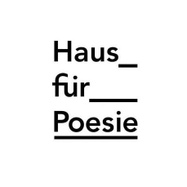WRITING HISTORIES – There’s hardly time for the business of poetry
In the organizer's words:
Dome Hall
How does history inscribe itself into poetry - and how do poets deal with traces of collective or individual memory when they deal with the transgenerational traumas of entire societies? What happens in poetic work with historical sources and how does the imaginative power of poetry change the experience of history? Writing Histories presents four poets who go deep into history in their texts and explore its manifold effects right up to the present day.
Sylvie Kandé (born 1957 in Paris) is a French poet who teaches African history in the USA. In her lyrical work, too, the past becomes the subject of her interest in many different ways. For example, she deals with transatlantic human trafficking or recalls the overlooked history of Senegalese units that were wiped out in the service of the French army during the two world wars.
In her multi-award-winning long poem "Die unendliche Suche nach dem anderen Ufer" (Matthes & Seitz 2021), Kandé first returns to the 14th century and describes the Atlantic crossing of the Malian ruler Abubakari II in several variations. Poetry becomes a place for the reimagination of history, both historical and visionary. These are polyphonic, richly orchestrated texts that have been mentioned in the same breath as Saint-John Perse and Derek Walcott's Homeric work "Omeros". In the concluding part of this neo-epic narrative, past history is juxtaposed with contemporary stories of flight and migration. Kandé says: "The epic is not only a genre, but above all the expression of a mind gifted with imagination".
The Ukrainian poet Marianna Kijanowska (born in 1973 in Nesterow, now Shovkva, Lviv Oblast) writes in her poetry collection "Babyn Jar. Stimmen" (Suhrkamp Verlag 2024, German translation: Claudie Dathe) about the war crimes committed by the German Wehrmacht during the Second World War.
Babyn Yar is a ravine near Kyiv, where more than 33,000 Jews were killed within two days in September 1941. 67 poems, which together form a cycle, bring the voices of the past to life in fiction, victims and witnesses who speak to the reader with great immediacy. The book, which is already considered one of the most important works of contemporary Ukrainian literature, has given rise to much debate: Is it permissible to speak on behalf of witnesses without having been a witness? The poet Serhiy Zhadan writes that the book is about mechanisms that enable the voices of others, the voices of many people, to resound through the poet, through her lines.
The Mexican poet and literary scholar Sara Uribe (born 1978 in Querétaro) became internationally renowned in 2018 with her book "Antígona González" (hochroth Verlag 2022, German translation: Chris Michalski). In the texts, the mythical figure of Antigone, who wants to bury her brother Polyneikes after his violent death against all odds, serves as a foil. In Uribe's work, she appears in a modern guise, in the light of various possible interpretations. The current background to these texts is the disappearance without trace of countless people in Mexico and the persistent silence on the part of the authorities. The beginning of the book, "Instructions for Counting the Dead", formulates an imperative for moral action: "Keep the memory of those who have died alive." Writing becomes an act of naming an absence and poetry becomes a place to mourn the dead. Every seeker is Antigone, every unrecovered dead person is her brother Polyneikes.
In the texts by Romanian poet Miruna Vlada (born 1986 in Bucharest), voices form a choir. In the 2014 volume "Bosnien. Gütertrennung" (German translation: Ernest Wichner), published in 2014, they are women who became victims of the civil war in the former Yugoslavia. For Vlada, who sees Bosnia as a kind of adopted country, the work is both a poem and a story. They are messages from the "broken heart of Europe", they tell of the massacres in Foča and Tuzla, they are aware of the omnipresence of the repressed: "with every touch, a death passes us by". These texts are brutal and tender at the same time, always direct, sometimes aggressive, for example when the actress Angelina Jolie, who made a well-intentioned feature film about the Bosnian war in 2011, is addressed: "oh, you, dear Lara Croft, mother of my grieving nation, adopt me, give me a few kilos of cat food from the relief supplies"
With: Sylvie Kandé, Marianna Kijanowska, Sara Uribe, Miruna Vlada
Moderation: Irina Bondas
The event will be interpreted into English and German. With the kind support of ECHOO Konferenzdolmetschen
Project management: Timo Berger
Supported by:
Instituto Cervantes Berlin, Institut Français, Romanian Cultural Institute. The poesiefestival berlin is a project of the Haus für Poesie in cooperation with silent green Kulturquartier and the Akademie der Künste and is funded by the Hauptstadtkulturfonds.
This content has been machine translated.Location
Organizer














